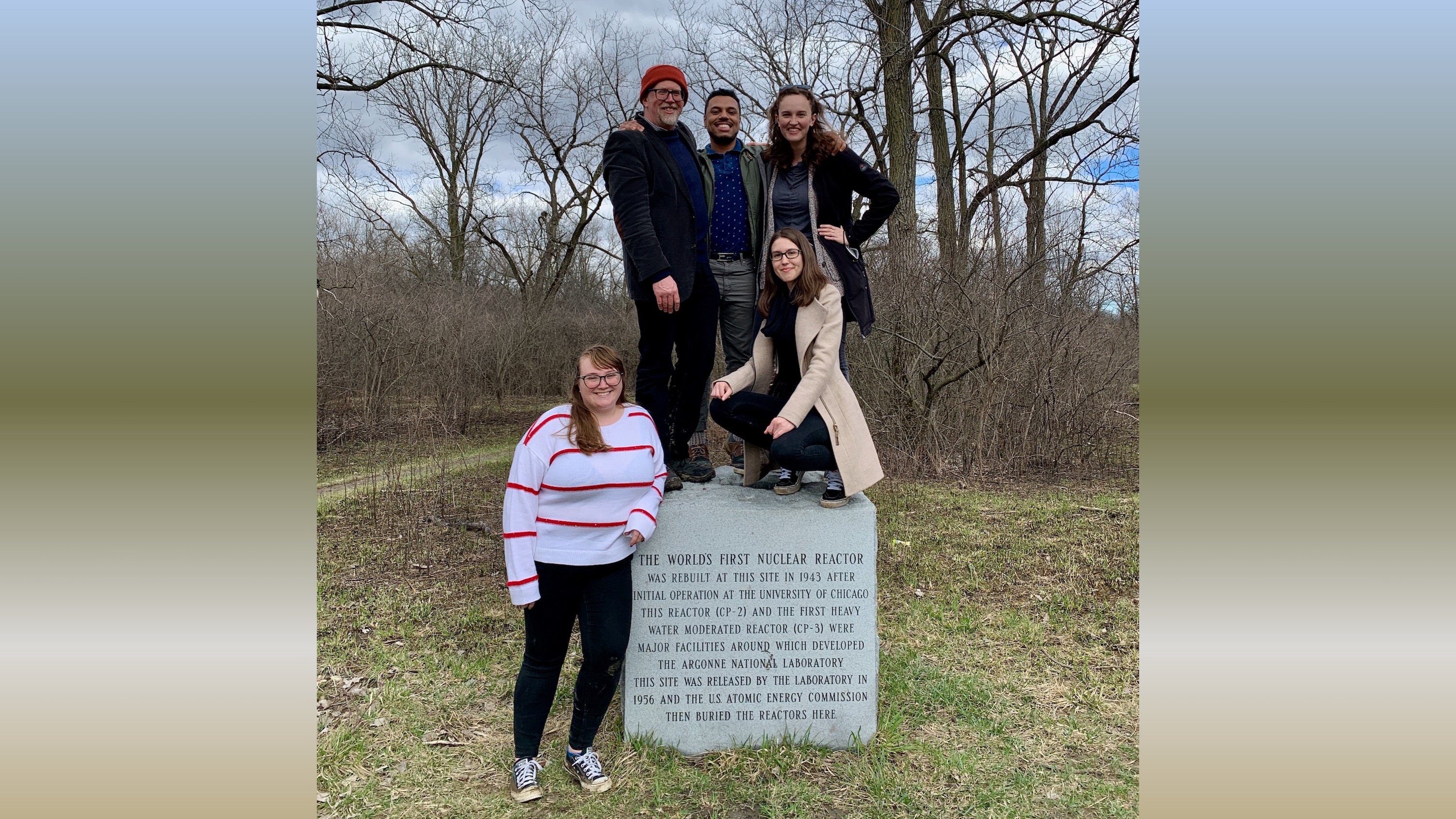home_news
Assoc. Prof. Dan Killelea receives NSF Grant

Killelea group (Apr. 2022) (L-R: Liz, Dan, Maxwell, Faith, and Christina) Visiting the world first nuclear reactor outside Chicago
The Killelea group was recently awards a grant from the NSF for $525,000 for 3 years to study the kinetics and mechanisms of oxidation over rhodium surfaces. This project is part of an international collaboration with researchers at Leiden University in The Netherlands and The University of Göttingen in Germany, as well as Lake Forest College and The University of Tulsa. The central theme of the project is connecting the kinetics of surface-catalyzed reactions to the chemical composition of surfaces.
Heterogeneously catalyzed oxidation reactions on metal surfaces are superficially straightforward, yet seemingly subtle details may dominate because of the heterogeneity of the surfaces. Consequently, key details are often obscured, and accurate atomic-level descriptions are elusive for even a ‘simple’ reaction like CO oxidation to CO2. Accurate details of the species present and their energetics are needed for the development of predictive models of these reactions. The Killelea group and their collaborators seek to build on their previous studies of the formation of the various oxygenaceous species on Rh surfaces, and determining their relative reactivity. The oxidation reaction kinetics and mechanisms at distinct surface sites (e.g. terrace vs. step edge) will be measured using reactive scattering in collaboration with groups at The University of Göttingen and Leiden University. These studies will provide the means to optimize the utilization of scarce metals, promising environmental and economic benefits.
Students in the Killelea group use a variety of ultra-high vacuum (UHV) analytical techniques, including scanning tunneling microscopy (STM) and infrared spectroscopy to determine the composition and structures of surfaces and their chemistry. Students will have the opportunity to spend time in The Netherlands and Germany to conduct research in our collaborators’ labs and will present their results at conferences in the USA and Europe.


